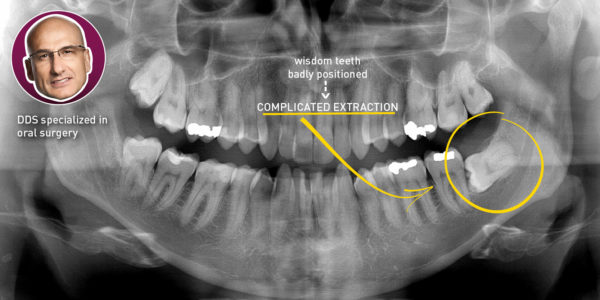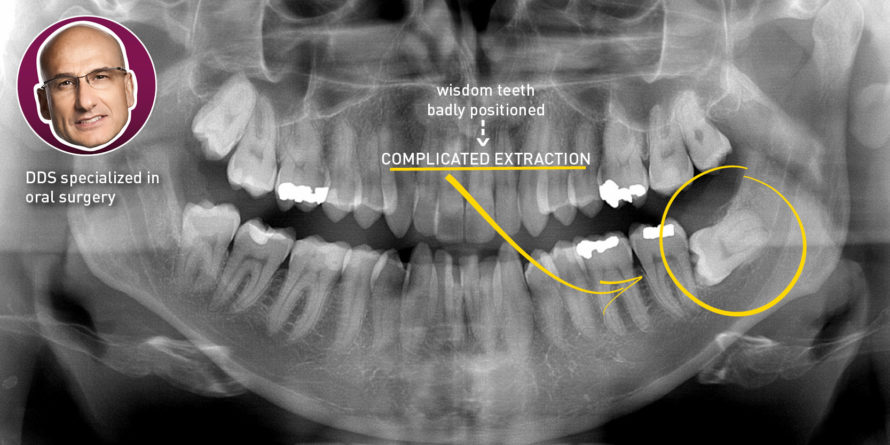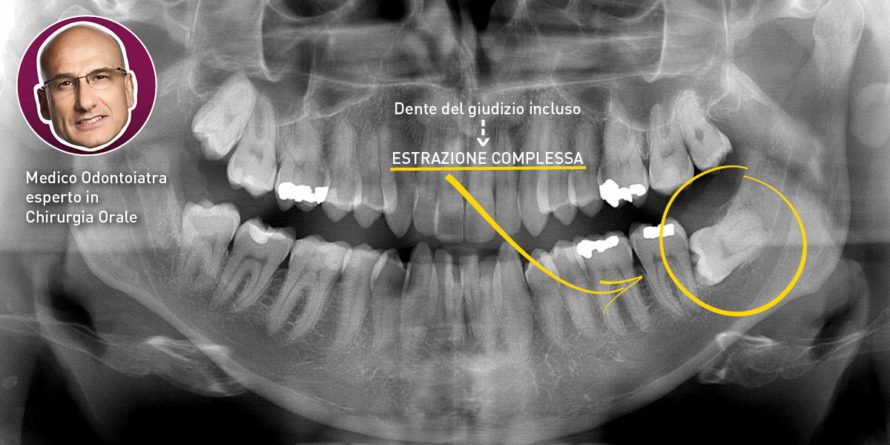
However, they should not always be removed…
When and who to rely on to understand what to do?
Wisdom teeth are actually a legacy of the past. Just think that the facial features of our ancestors had a much protruding mouth compared to ours, with a longer jaw to comfortably accommodate 32 teeth. With evolution, however, the jaw pulled back, but kept the same number of dental elements.
This is why wisdom teeth which erupt last often do not have enough space.
The choice to extract wisdom teeth
When to extract wisdom teeth?
The choice to extract a wisdom tooth can have many causes.
One of them is when pain appears.
>> A non-erupted wisdom tooth, for example, can cause an inflammation or a gum abscess. Other times, the tooth can be decayed and need to be extracted. In fact, wisdom teeth are often so close to neighboring teeth that an accurate cleaning is very difficult. This increases the risk of caries formation because the space between the tooth crown and the jaw bone is the ideal environment for bacterial proliferation. If it is not possible to clean the teeth accurately, bacteria multiply and cause infections and severe inflammations.
In worst cases, like we said, an abscess can appear which not only causes severe pain, swelling and fever, but also repercussions on the patient’s general health condition.
>> Another case is when the wisdom tooth is badly positioned, meaning it is oriented horizontally and is in contact with the roots of the neighboring molar. The risk to damage it or, in worst cases, to cause its loss, indicates that it is better to remove the wisdom tooth.
>> It can also happen that the wisdom tooth and the gum appear healthy but the lack of space in the arch requires to proceed with an extraction. The specialist will evaluate the extent of the orthodontic problem or do a growth forecast for young patients. We should consider that, if the space for a correct eruption is missing, the tooth could grow bent and damage the gum and neighboring teeth with a consequent reduction in the chewing function.
The risks of the intervention
What about after the surgery?
Technological and scientific research have made post-operative progress moderately quiet and safe.
However, each person experiences pain differently. This condition obviously also applies to the wisdom tooth which, for some people, can cause discomfort. Pain and swelling, however, can be controlled through the correct pharmacological therapy prescribed by the dentist pre and post intervention. It is recommended not to force movements that are difficult and to keep in touch with the orthodontist.


